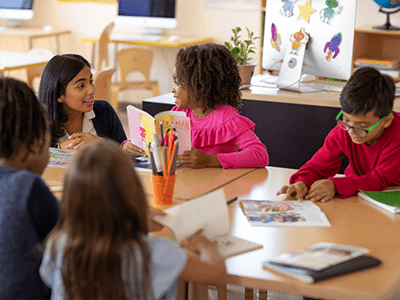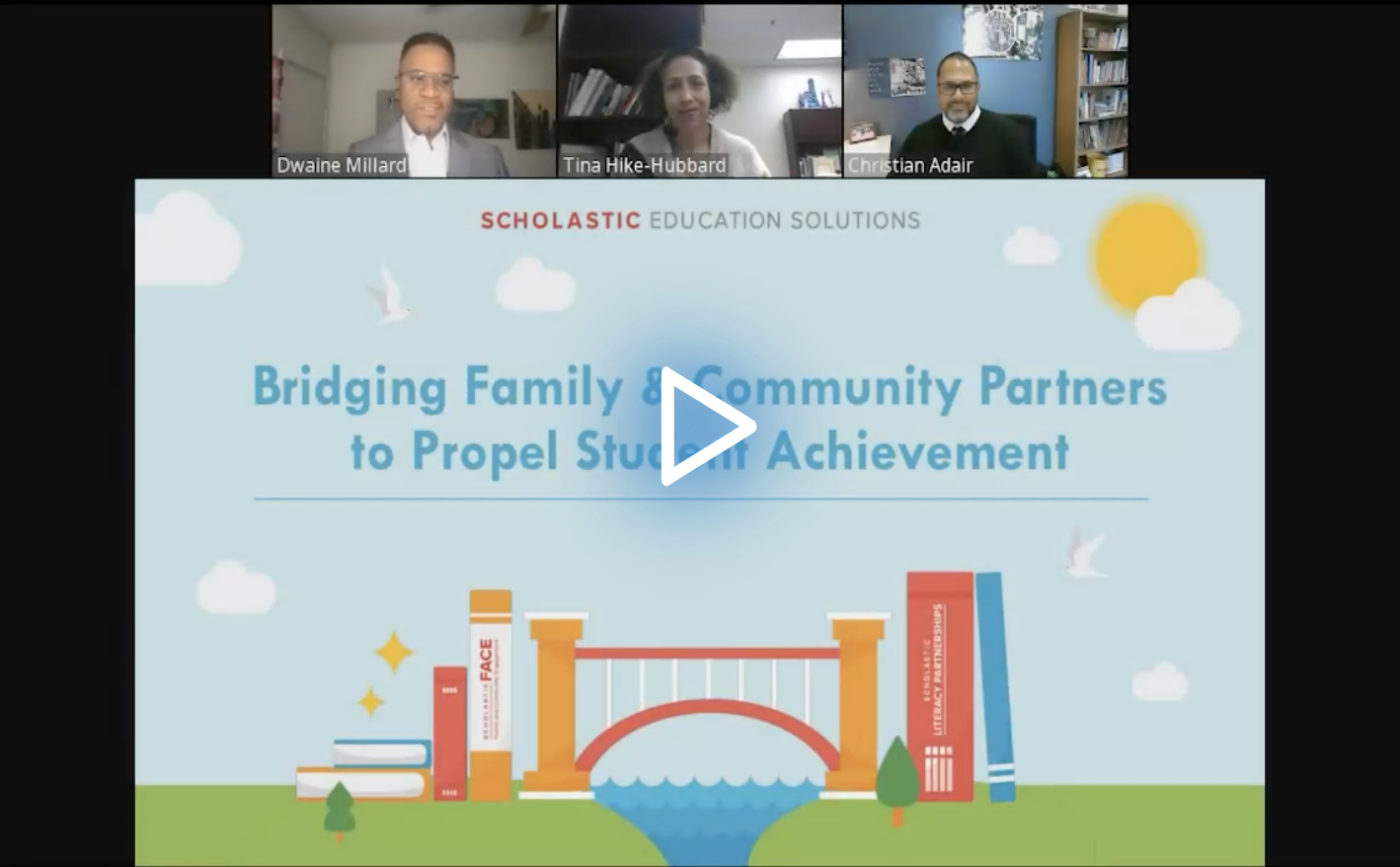Supporting Educational Recovery with Community and Family Engagement
Watch the Recording Listen to the Podcast
Helping students resume their learning progress as they emerge from the pandemic may require more than academic intervention or acceleration. In cities such as Baltimore, MD and Lexington, KY, school districts have recognized the importance of considering the whole child and using community and family engagement programs to provide comprehensive support.
During the edLeader Panel, “Bridging Family and Community Partners to Propel Student Achievement,” the presenters discussed ways to implement and continue improving these types of educationally supportive programs.
Providing Education and Support Services
In Baltimore City Public Schools, the schools’ community and family coordinators proved to be a crucial resource when the pandemic began, and according to Tina Hike-Hubbard, Chief of Communications, Engagement, and Enrollment, the community schools program has been expanded from 50 to 130 schools. The coordinators’ familiarity with local families enabled them to provide resources needed for students to connect academically and learn remotely, as well as receive food and other support services.
While family coordinators focus on the students and their caregivers, community coordinators connect partners such as local businesses and volunteers to schools, students, and their families. Needs assessments are used to identify key issues and then match service recipients with local partners, and the assessments also help coordinators develop implementation plans designed to facilitate and optimize the delivery of services.
In Fayette County Public Schools, there are family engagement coordinators in every school, and those coordinators played a similar role in providing laptops, hot spots, books, and food during the pandemic. They also identified and responded to transportation needs, and built partnerships with local businesses and churches that could provide additional support.
Fayette County Public Schools also recognized the importance of mental health and responded accordingly. As the pandemic progressed, mental health became a topic that people throughout the school communities were willing to discuss more openly, and as a result, student support teams now go into the community to discuss mental health. There are also discussions about the topic via social media, as well as at family round-tables held in schools.
Baltimore school leaders have also recognized the importance of mental health and the fact that mental health issues cannot be met by school counselors alone. Local partners, including faith-based institutions, now participate in wellness walks, mentoring programs, and other types of support activities. Schools have also created “parent cafes” where parents can discuss non-academic issues in a safe environment without being judged.
Expanding Family and Community Engagement Programs
Baltimore has now established a partnership framework aligned with district policies and priorities and a rubric for evaluating partners. School leaders receive training in developing partnerships and ensuring that they are linked to learning and wellness. Recently, there has been an emphasis on providing arts and athletic opportunities, which many students missed while learning remotely.
Fayette County Public Schools has a Community Partnership Leadership Team that meets once a month to share information about projects and make sure they are moving the needle forward. As part of this effort, the district recently established a foundation through which it can receive charitable donations. It is also working with local businesses to obtain services and technical training opportunities for students.
The district has also engaged local adults in sharing their love of reading with students through live events pre-pandemic and then via online videos during remote learning. Local police, firemen, athletes, and family members read books aloud and discuss their meaning and impact, which has helped “reading become cool,” according to Christian Adair, Student/Family Transitional Support and Dropout Prevention Specialist. In addition, the students receive similar books to read on their own. There’s also a Family University, which is now conducted in multiple languages to provide information and help all families feel welcome and comfortable.
Baltimore schools have been using surveys and focus groups to obtain input from all community members. Sharing the results and explaining how the input is influencing decisions helps community members understand the impact of their input. School leaders have also participated in neighborhood walks, where they interact with local residents, and community buses are also being used to deliver services within communities and help with issues such as enrollment.
To further increase family and community engagement, Tina Hike-Hubbard has conducted town halls with multiple translators, including someone familiar with the dialect used by Afghan resettlement families. These events have made the district’s recovery plan more accessible and enabled district leaders to answer the key question for most parents, “What does it mean for my child?”
Learn more about this edWeb broadcast, “Bridging Family and Community Partners to Propel Student Achievement,” sponsored by Scholastic Education Solutions.
Watch the Recording Listen to the Podcast
Join the Community
Leadership 3.0 is a free professional learning community where school and district leaders collaborate on innovative strategies to help teachers grow professionally, advance student learning, and improve communications with all stakeholders.
Scholastic Education Solutions provides teachers, families, and communities with the tools they need to support each and every child with print and technology-based learning programs for pre-K to grade 12, expert professional development, family and community engagement, and learning supports.
Blog post by Robert Low, based on this edLeader Panel.





Comments are closed.